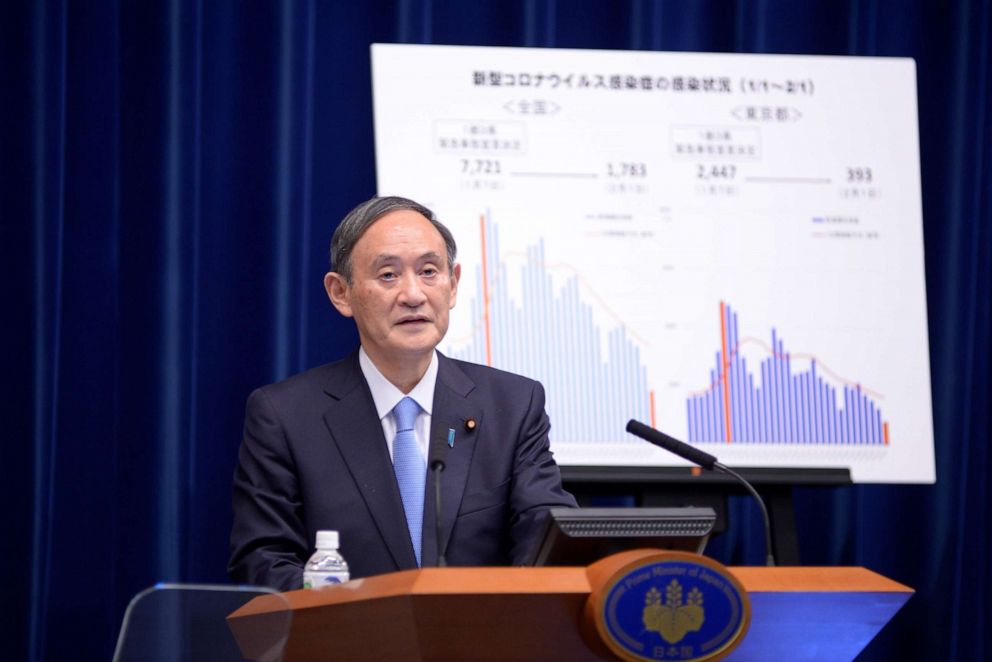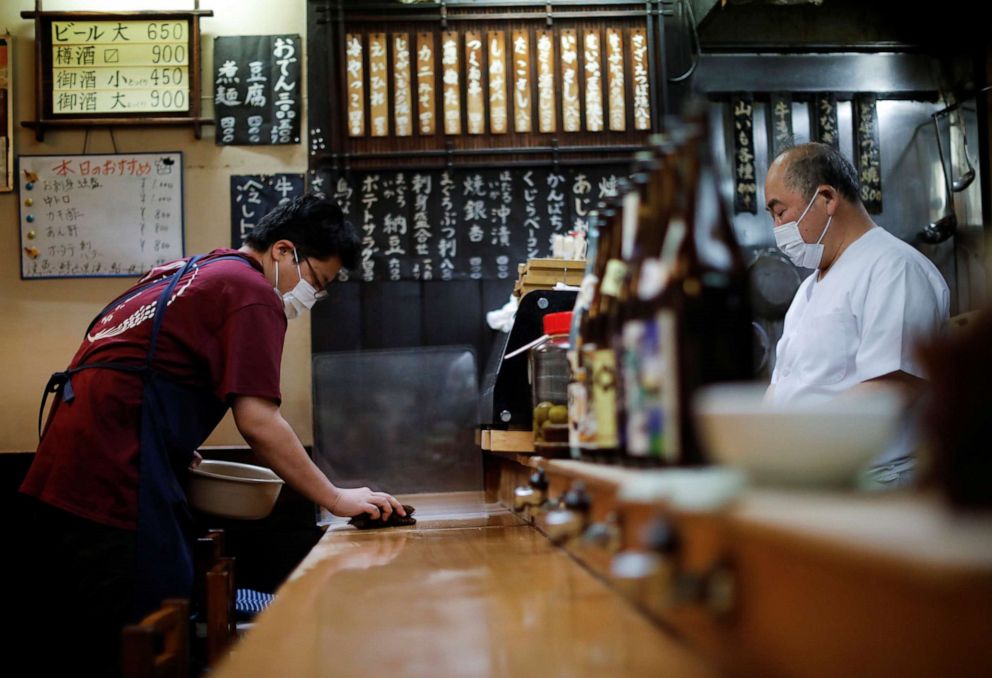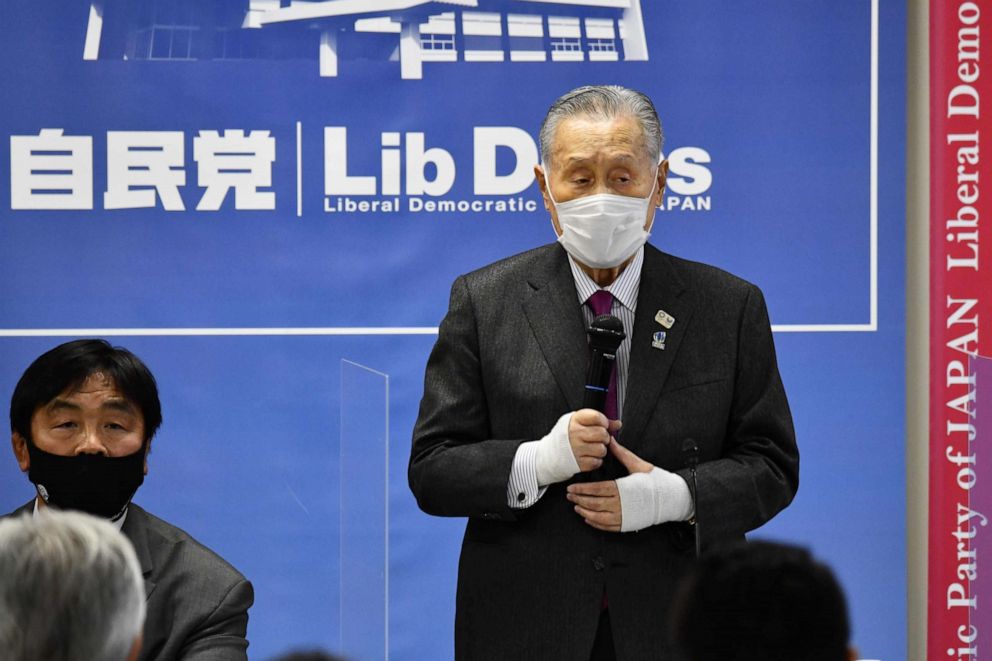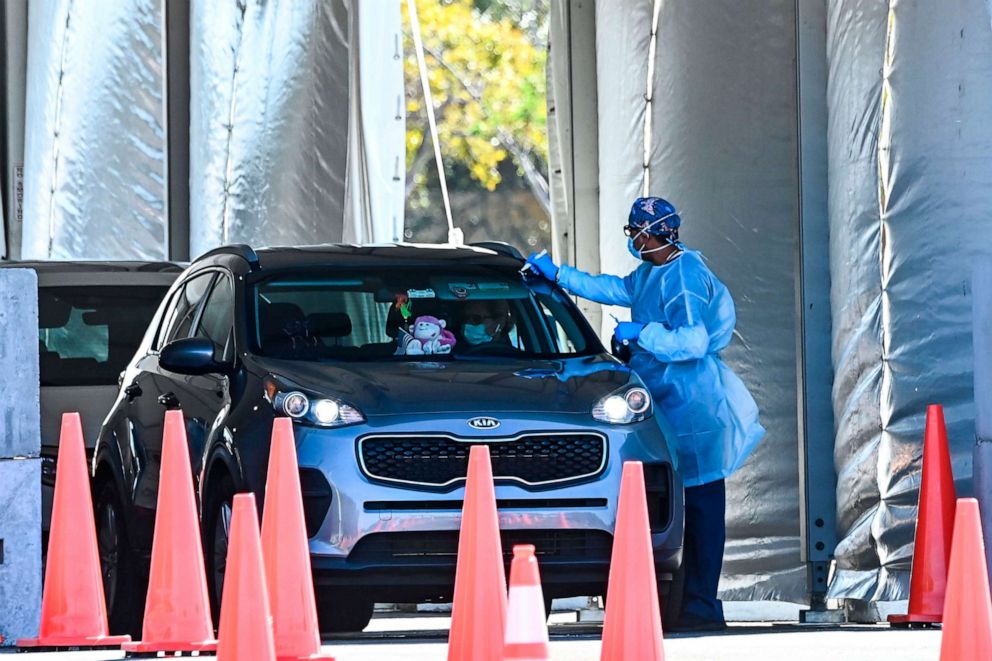Japan extends state of emergency in greater Tokyo area
Japanese Prime Minister Yoshihide Suga has extended a state of emergency in Tokyo and nine surrounding prefectures for another month to further stem the spread of the novel coronavirus.
The declaration, however, was lifted in Tochigi prefecture, north of Tokyo, where the COVID-19 infection rate has eased.
"I regret that the declaration cannot be lifted across the nation at this time," Suga said Tuesday night in a televised address from his office in Tokyo.
The prime minister used a chart to show that Japan's daily number of newly diagnosed infections has declined from 7,721 on Jan. 7 to 1,783 on Feb. In Tokyo, that number has dropped from 2,447 on Jan. 7 to 393 on Feb. 1. According to the Japanese Ministry of Health, Labor and Welfare, there were 556 new cases of COVID-19 confirmed in the capital city on Tuesday.

Suga said the state of emergency could be lifted earlier than March 7 if the situation continues to improve. He noted that his government is hoping to begin a mass COVID-19 vaccination program as early as mid-February.
"Thanks to the cooperation of the people of Japan, we have seen a marked outcome," he said. "At this point in time, I need to ask the people to endure another round of the state of emergency so that positive outcomes can be solidified."
The move comes less than six months before the pandemic-delayed 2020 Summer Olympics are scheduled to open in Tokyo.
A state of emergency declaration gives the governors of those respective regions the authority to ask residents for cooperation in efforts to curb the spread of the virus. There are currently no legal ramifications for non-compliance.
Suga first declared a state of emergency in Tokyo and three neighboring prefectures on Jan. 7, before expanding the order to include more virus-hit areas.

Under the state of emergency, Suga said governors will ask residents to refrain from dining out and to stay home after 8 p.m. unless for essential reasons. They will also ask companies to decrease the number of employees commuting to work by 70%.
Suga said bars and restaurants will be asked to stop serving alcohol by 7 p.m. and to close by 8 p.m. Governors may disclose the name of the businesses that don't comply, while those that do will be given 1.8 million Japanese yen ($17,000) per month.
Spectator events will be limited to an audience of 5,000 people. Schools will not be asked to close, according to Suga.
Suga's predecessor, Shinzo Abe, declared a nationwide state of emergency relatively early in the pandemic in April, which lasted for a month. At that time, residents were asked to reduce person-to-person contact by 80% and to practice "jishuku," or "self-restraint," by staying at home and closing non-essential businesses.
As of Tuesday, the Japanese Ministry of Health, Labor and Welfare has confirmed 392,475 cases of COVID-19 since the start of the pandemic, including 5,846 deaths.
ABC News' Anthony Trotter contributed to this report.






